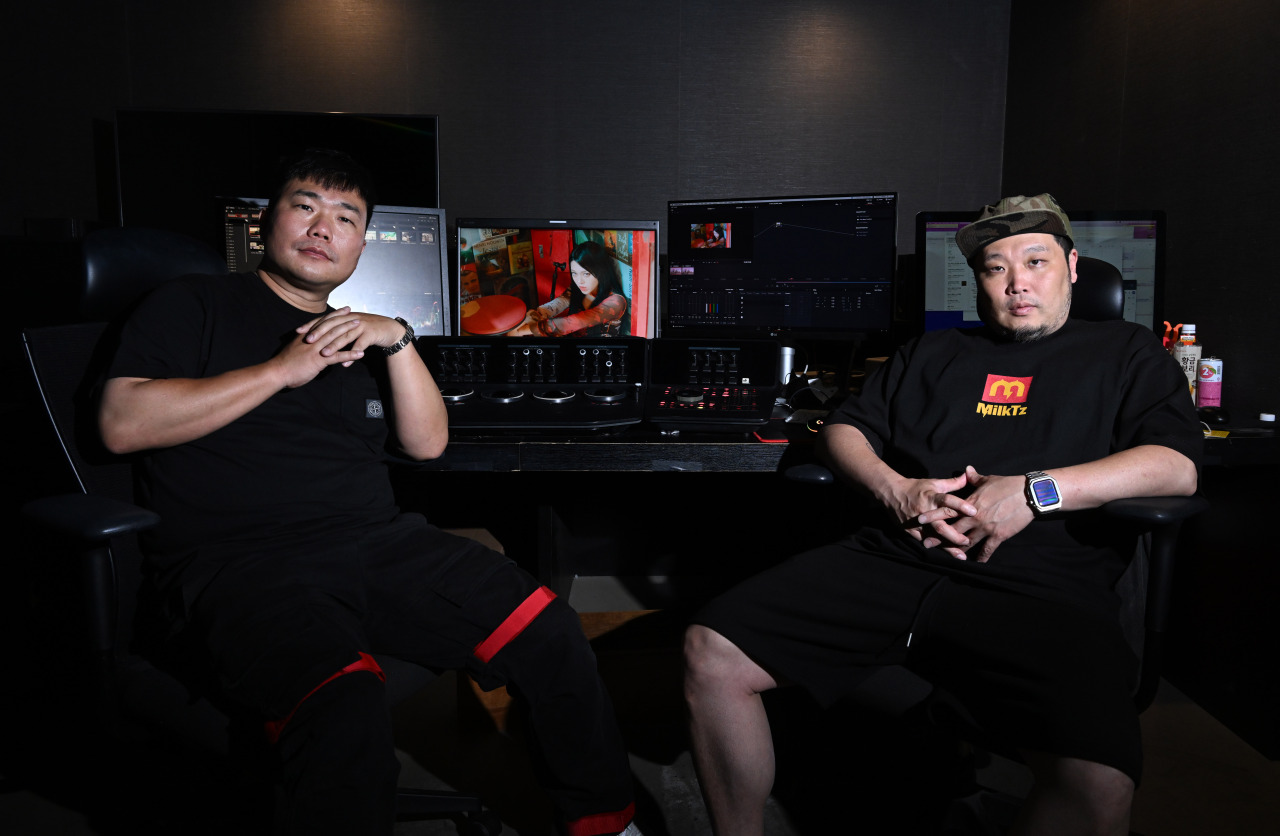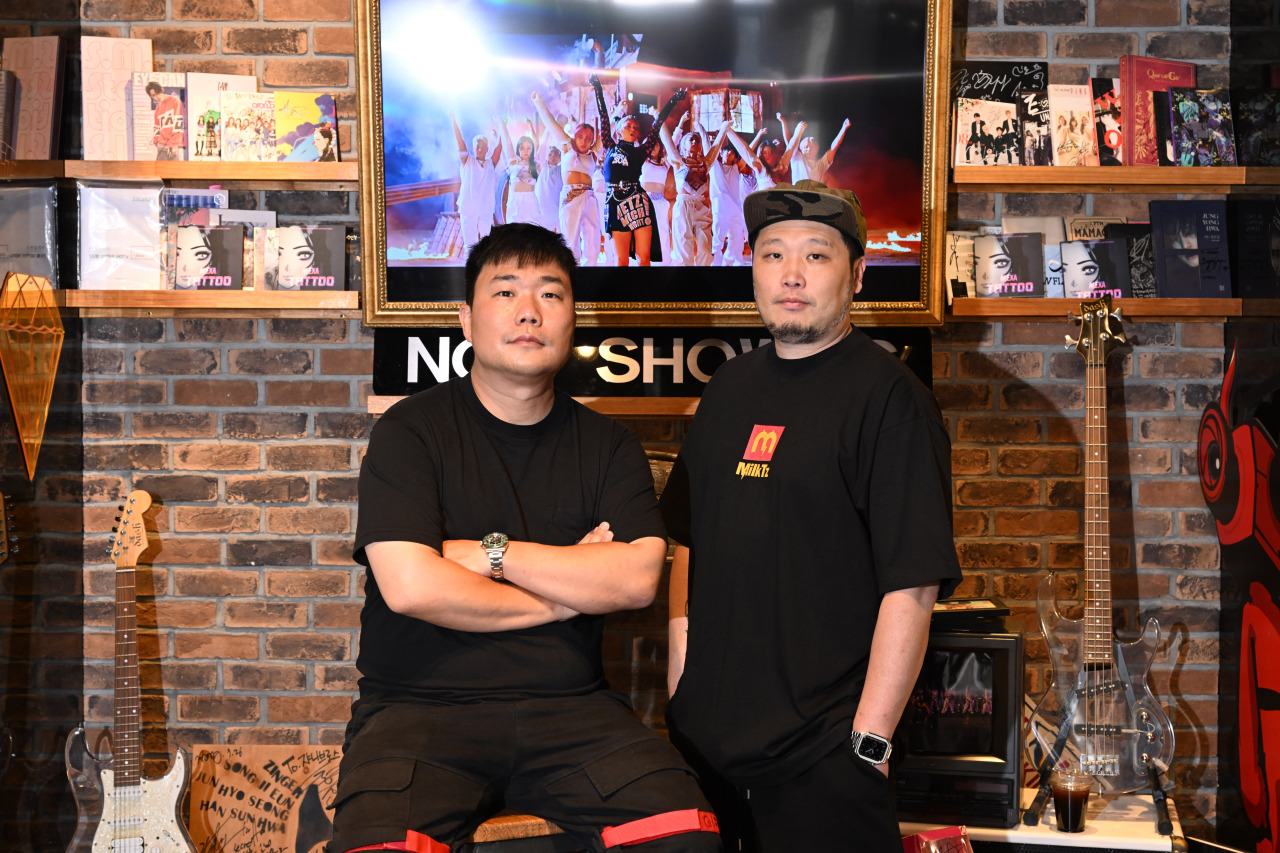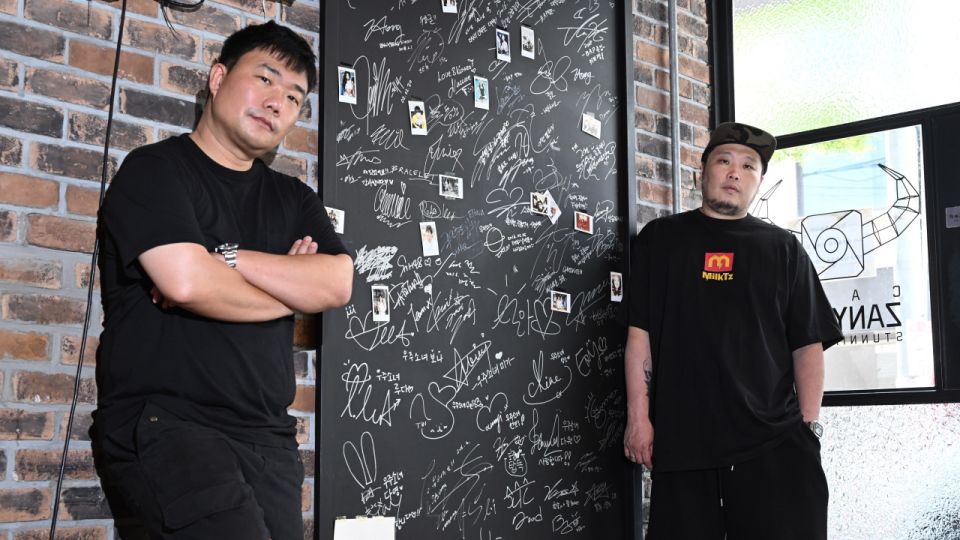June 23, 2022
SEOUL – The popularity of K-pop has skyrocketed in recent years, becoming one of the major influences on global culture, and the powerful dance performances and magnificent visuals shown in the music videos are two hallmarks of the scene.
While an ever-growing number of artists have come and gone over the past two decades, two veteran creators behind some 1,500 music videos have remained strong through it all.
And they are not shy about proclaiming the massive role music videos have played in K-pop’s success.
“Music videos include not just (artists’) music, but also their beauty, fashion, choreography, artwork and everything. It’s like a gift set that comes with everything in it,” said Hong Won-ki, co-chief executive officer and co-founder of music video production company Zanybros.
“Back in the days, they used to be the only source by which overseas K-pop fans could get a taste of the local artists’ music, since live broadcasts were not available there,” he said in a recent interview with The Korea Herald.
He estimates the influence of videos is enough to account for about 70 percent of K-pop’s overseas success.
Hong and his longtime partner Kim Jun-hong, who is also the CEO and founder of Zanybros, met The Korea Herald at the company’s headquarters in southern Seoul. Their confidence and fondness for the production work shone out from their somewhat brusque manner during the interview.
The 46-year-old producers met in college and shared the same vision of filming and producing videos related to music. Hong and Kim founded Zanybros in 2001, and have collaborated with some of the biggest names in the business, including Seo Tai-ji and BTS.
“The name ‘Zanybros’ came from the original Korean meaning of the word ‘zany’ meaning ‘clown,’ combined with the English word ‘brothers,’ which means ‘outrageous brothers’ as a whole,” Kim said with a grin. “Like the brand name, we tried many new things that were completely out of the box that people did not expect to see in the field.”

Kim Jun-hong (left) and Hong Won-ki, co-CEOs and co-founders of Zanybros, pose for photos during an interview with The Korea Herald at the K-pop music video production company’s headquarters in southern Seoul. (Im Se-jun/The Korea Herald)
Zanybros was not a K-pop-focused company at first. The producers started the business with just 2 million won ($1,500) and no established industry network. Since Hong had been in a rock band from a young age, the two started by making music videos for underground indie bands for free.
The duo’s journey began with producing the music video for band Lazybone’s “Do It Yourself,” and seeking to bring talented musicians to the fore. Hong said, “It was an effort to help a relatively less popular music genre to become mainstream.”
A big turning point in their careers came after they shot the “Moai” music video for K-pop icon and unofficial “culture president” Seo Tai-ji in 2008. The unexpected project was the producers’ final goal at that time, according to Kim. He described the feeling than like having to face off with the ultimate boss upon reaching the final level in a video game.
Hong and Kim started K-pop video projects just as K-pop started to take off in the 2000s. Wowed by Zanybros’ videos, officials from several K-pop labels contacted the two and asked them to work with their musicians. The first K-pop video project they were involved in was with the now-defunct SS501, Hong said.
When asked to name some of the K-pop idols they collaborated with, Hong responded, “It will be faster to name whom we didn’t work with.”
They attained international fame with their quality video production, working with groups across the K-pop generations, including Super Junior, EXO, Girls’ Generation, Mamamoo and BTS.

Kim Jun-hong (left) and Hong Won-ki, co-CEOs and co-founders of Zanybros, pose for photos during an interview with The Korea Herald at the K-pop music video production company’s headquarters in southern Seoul. (Im Se-jun/The Korea Herald)
Although they are veteran video producers, they had to learn to evolve with the constant shift of K-pop trends. With Zanybros’ kitsch vibe, the producers still shoot about 10 videos per month, in addition to other K-pop music-related videos such as documentaries and reality programs.
“We could highlight our unique colors and styles in the videos. But since music videos prioritize music itself, we try to focus on what the songs try to say to the audience. We try to include as many as memorable scenes in their videos as well,” Kim said of the secret behind their longevity in the industry. Hong also mentioned that “the answers” are all in music regardless of genre.
Marking its 20th anniversary last year, Zanybros started broadening out, with an eye on becoming a global entertainment content production company. Hong produced the 2020 Netflix drama “Goedam: Collection” and directed the horror movie “Seoul Goedam,” which hit local theaters in April. Kim, who saw potential in rising American K-pop artist AleXa, has been promoting the musician under the firm’s music label ZB since 2019. AleXa won at NBC’s “American Song Contest” in May.
Kim said “being fearless” about taking up challenges was what shaped Zanybros, and added that they will continue to “carry on our frontier spirit and apply it to a wider spectrum of high-quality entertainment content.”
Revealing that his personal goal was to become someone’s role model, the co-CEO said the firm has set its sights on an initial public offering as well.
“By entering a new market, I want Zanybros to become a legend,” Kim said.


